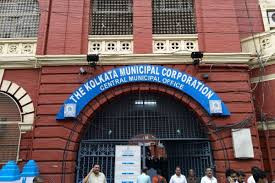Colleague Panic as Passenger Triggers Emergency Alarm on Kolkata Metro, Causing Significant Delay
IIE DIGITAL DESK : Wednesday morning's rush hour commuting on Kolkata Metro was disrupted when an unidentified passenger activated the emergency alert alarm in a southbound train at Rabindra Sarobar station, triggering confusion and delay that frustrated many travelers.
At around 9:15 AM, the southbound metro towards Dakshineswar came to an unexpected stop at Rabindra Sarobar. Initially, passengers believed a technical malfunction or signal issue had halted the train. Moments later, the source of the delay became clear: the “Passenger Alert Device” had been engaged—commonly known as the emergency alarm, meant to summon the driver’s attention during crises.
Metro authorities confirmed that one of the compartments’ emergency alarms was pulled. Upon hearing the siren, the driver promptly walked through the train to locate the source. However, despite several announcements and checking of compartments, no passenger admitted to having pressed the alert. The driver and on-board staff were unable to identify the individual responsible or the reason behind the activation .
This incident resulted in the train being stationary for several minutes, halting not only that service but also causing a chain reaction of delays. The train directly behind had to stop as well, and those further down the line were forced to slow or pause. As a result, the already crowded morning service became even more congested, exacerbating passenger frustration .
Commuters voiced their displeasure at the unexpected stoppage. A visibly irritated passenger told reporters, “Everyone thought there was a breakdown—it wasted our time and strained capacity on other trains.” The delay disrupted morning routines for many, increasing the risk of lateness on the way to work or appointments.
Kolkata Metro Railway authorities later assured this interruption was quickly resolved. A spokesperson stated that operations resumed shortly after all compartments were inspected and cleared; however, they also acknowledged the unnecessary activation of the alarm as a misuse of the emergency protocol .
The emergency alarm system is intended for life-threatening situations—medical emergencies, security threats, or mechanical issues where immediate attention is required. However, in recent months, the system has been triggered erroneously on multiple occasions, though few incidents have been reported as extensively as this one.
This disruption brings attention to broader safety and protocol adherence in Kolkata's metro system. In early June, officials introduced a safety rule imposing a ₹250 fine for passengers crossing the yellow warning line on platforms, reflecting a growing emphasis on discipline and public safety measures across the network . Earlier initiatives have included cracking down on unauthorized joyriding and other infractions. Yet, misuse of emergency devices undermines the system’s reliability and can delay genuine assistance during actual emergencies.
Experts warn that false alarms can have serious consequences. “Repeated misuse desensitizes staff and passengers to real emergencies,” noted a transportation safety consultant. “It can delay response and increase risk in situations where every second counts.”
The perpetrator remains unknown. No announcements or surveillance footage have identified anyone. Officials stress that while they are reviewing CCTV footage and making announcements to find those responsible, they also urge commuters to use emergency devices responsibly and ensure they remain available for critical situations.
The incident highlights vulnerability in the system and the need for both stricter enforcement and greater public awareness. A former metro employee suggested introducing heavier penalties for false alarms, or even revoking travel passes for repeat offenders, arguing it could deter misuse and preserve system integrity.
As Kolkata’s metro ridership has grown into one of India's highest—averaging over 700,000 daily riders—ensuring uninterrupted and safe service is paramount . While the network manages high volumes effectively, moments like these show how quickly disruptions can ripple across the system.
Authorities may consider reinforcing surveillance near alarm buttons, making clearer signage about alarm misuse, and stepping up public education campaigns. Each false alarm poses the risk of delaying service, inconveniencing commuters, and potentially risking lives if a real emergency arises. For now, passengers and officials alike await resolution—and hope that future alarms signal genuine emergencies, not confusion.
You might also like!


























